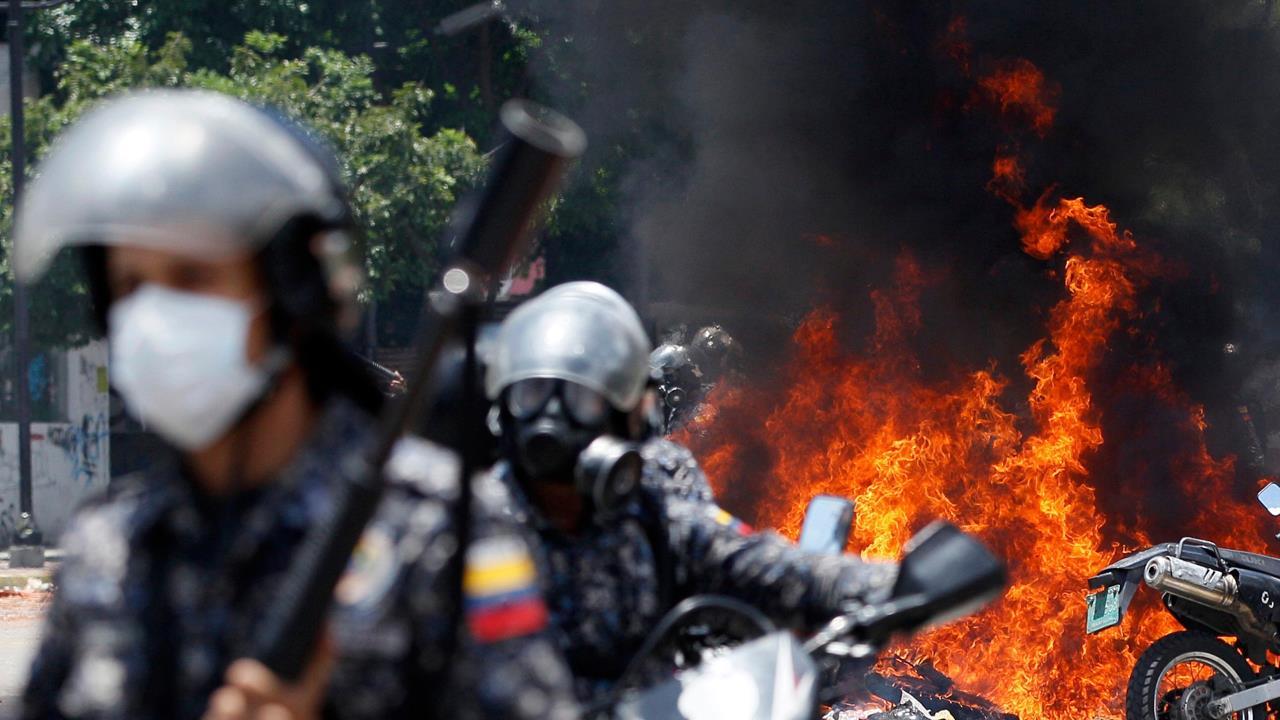Venezuela's new currency confusing residents: report
Residents of Venezuela are expressing confusion about the country’s newly implemented currency on Tuesday after President Nicolas Maduro took emergency measures to prop up a spiraling economy.
Maduro’s regime relaunched its currency as the "sovereign bolivar" this week to address hyperinflation that could reach 1 million percent by the end of the year, according to the International Monetary Fund. The new currency is being printed with five fewer zeroes than the previous currency – a change that has left Venezuelans scrambling to understand the difference.
“I still don’t understand it very well,” homemaker Maritza Vargas told The Associated Press. “The truth is that I’m still not clear.”
Venezuelans can withdraw no more than 10 sovereign bolivars per day from ATMs, but are able to make larger purchases on debit cards. Based on the current limit, it would take a week to withdraw enough money to buy a 2-liter bottle of soda.
Citizens are said to be relying on calculators and conversion charts to conduct basic transactions using the new currency, such as buying groceries.
Aside from the currency relaunch, Maduro has vowed to drastically raise the country’s minimum wage by Sept. 1 and raise gasoline prices to match international levels. Economists have expressed skepticism about the plan, arguing the measures would likely exacerbate inflation rather than reverse it.
Maduro declared a bank holiday on Monday to help businesses adjust to the changes. Under the nation’s old currency system, the 100,000-bolivar note was worth less than 3 cents.
The Associated Press contributed to this report.




















